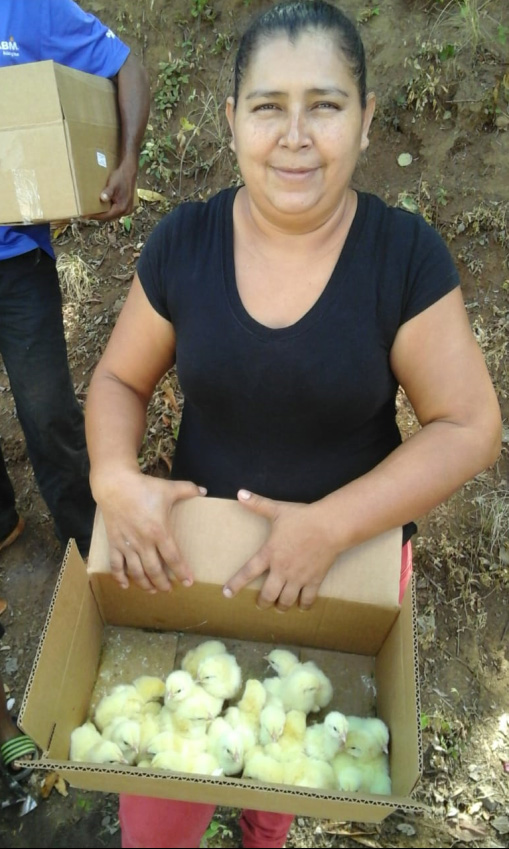Stories of Change

Johana. Photo courtesy CIEETS.
Peacebuilding amid crisis in Nicaragua
What began as protests in Nicaragua in April turned into civil unrest and violence that has claimed more than 300 lives and led to widespread fear.
Iván Aburto lives in the community of Santa Elena, about 20 miles south of the capital of Managua. “These past few months have been traumatic for us in the municipality of La Conquista,” Iván shares. “The violence, harassment and threats that have occurred and still continue have created a very real sense of fear among the families here, although we were lucky to not have suffered direct attacks here as in other parts of the country.”
To make matters worse, the political instability has taken its toll on the daily lives of farmers like Iván. And when combined with a drought in June and July and then heavy rains, it makes for a tough situation.
Johana Calero, who also lives in La Conquista, summed it up when she said, “we have been submerged in hate, drought and flooding.”
“Since April 2018 until today, it has been exhausting and distressing to deal with the situation of scarcity here. Because of the crisis, there hasn’t been any employment in the area. We are in a difficult situation for several reasons. First, during the period from April to July, which is normally the first planting seasons for corn, beans and other staple crops, we planted in smaller areas of crops because we were not able to travel to the market to purchase inputs,” says Iván.
Johana explained that during the first months of the crisis, roadblocks prevented anyone from leaving the area to purchase food or seeds. Supplies of basic ingredients like sugar, salt, rice and beans ran low. Children were not able to attend classes. Everyone was denied their right to move about freely.
Iván says, “There was no access on the roads and everything was closed, so we were forced to plant less. Furthermore, all of the prices increased.” With fewer seeds, families planted smaller areas. Then when drought and subsequent flooding set in, there was little left to harvest. Jovana added, “This situation has worsened the poverty here because we suffer the consequences of droughts and flooding directly. It impedes our ability to grow anything.”
“We have an uncertain future right now,” Iván noted, “The insecurity we are experiencing, the lack of trust in one another, the effects of the heavy rains and the high prices for basic goods… all of this only compounds the poverty of families.”
Amid this bleak situation, CWS local partner CIEETS is working with farmers to lessen the negative effects of the crisis. “Despite all of these difficulties, CIEETS has been working here on peacebuilding, and I see this as a good thing. They are also helping us find ways to start new economic initiatives which will help us make it through,” Johana says.
Iván noted, “The project supported by CIEETS has provided an alternative for families here in our community. Throughout the crisis, CIEETS has maintained communication with us, calling us to give encouragement to continue our work. And now, we are striving to diversify the economic options available to help families endure the crisis. I am thankful for this project and also appreciate that CIEETS has been providing peacebuilding workshops for families in the community.”
Perhaps the program’s slogan sums it up best. In Johana’s words, “I feel good about the work we are doing in our community. Our slogan for the project right now is ‘leave behind the resentment and walk in the path of goodness.’ I think there is a lot of goodwill in the local churches that are supporting the different activities of this project.”
